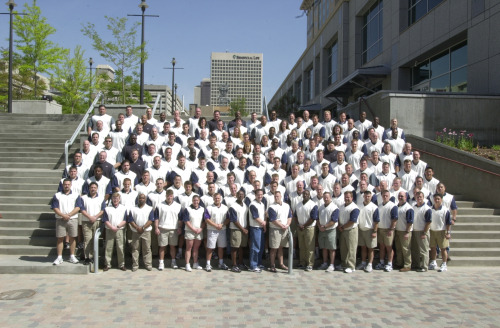
One of the greatest factors to have affected competitive athletics has been the incorporation of organized strength & conditioning programs into high school, collegiate, and professional athletic programs across the country. Strength & Conditioning programs have made competitive athletics more explosive and more exciting, as athletes have made great improvements in strength, power, speed, speed endurance, and body control. During the early 1970's, several intuitive universities, realizing the importance of the role of strength & conditioning, created a new full-time position--the strength & conditioning coach. Since that time, strength and conditioning programs have become an integral part of athletic programs across the country. Many universities today have large conditioning staffs to meet the increased demands placed on the strength and conditioning coach.
Although there were professional organizations which developed during this time of which many strength and conditioning coaches were a part, there was no organization solely dedicated to meeting the unique needs and challenges of the collegiate strength and conditioning coach. This situation changed, however, in May 2000, when a group of full-time strength and conditioning coaches from across the country met in Las Vegas and voted unanimously to organize a new professional organization. This new organization was named the Collegiate Strength and Conditioning Coaches association (CSCCa) and was designed to represent and promote the collegiate strength and conditioning coach. The following is a brief overview of the association's goals:
The CSCCa held its first national conference in Salt Lake City, Utah, in May 2001, and had well over 100 collegiate strength and conditioning coaches in attendance. The organization has continued to grow and now has well over 1,600 active members. In 2006, the organization's membership voted to expand the organization's membership base to include strength and conditioning coaches of professional athletic teams. The CSCCa welcomes all full-time strength and conditioning coaches of professional athletic teams (NFL, NBA, WNBA, NHL, MLB, etc.) who would like to become a part of this unique organization.
First CSCCa National Conference - May 2001
